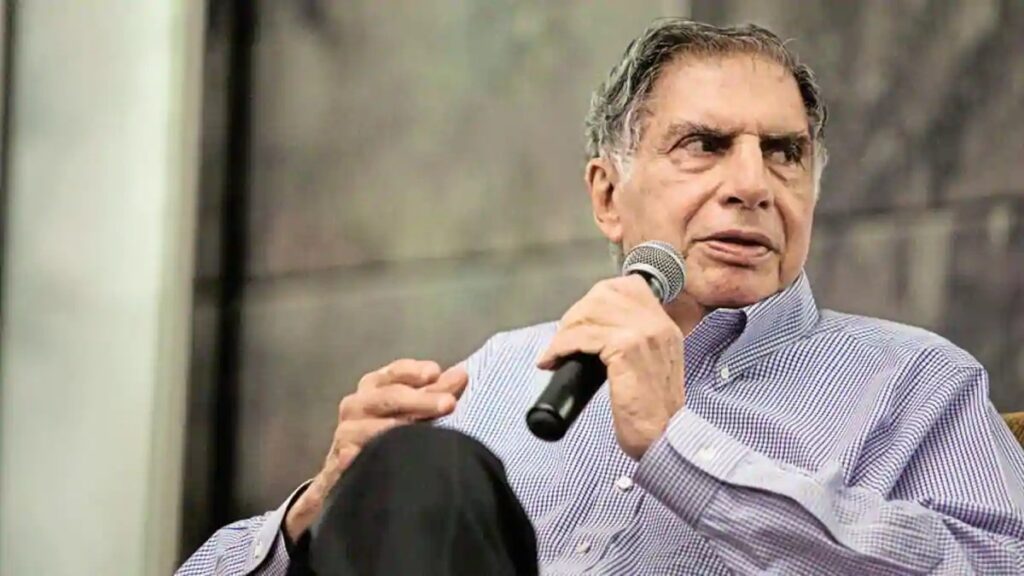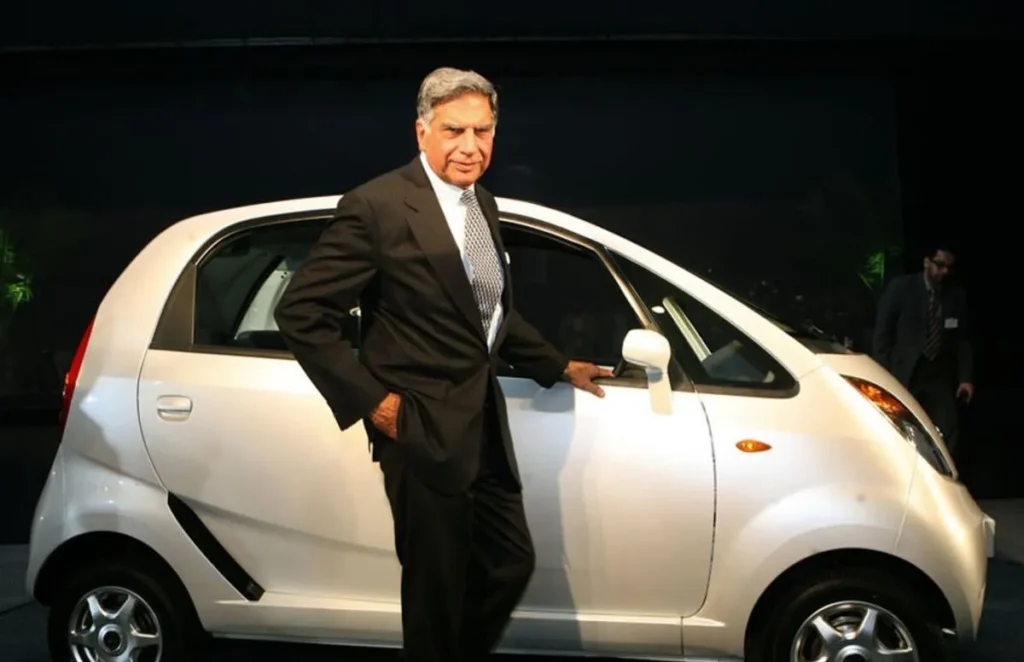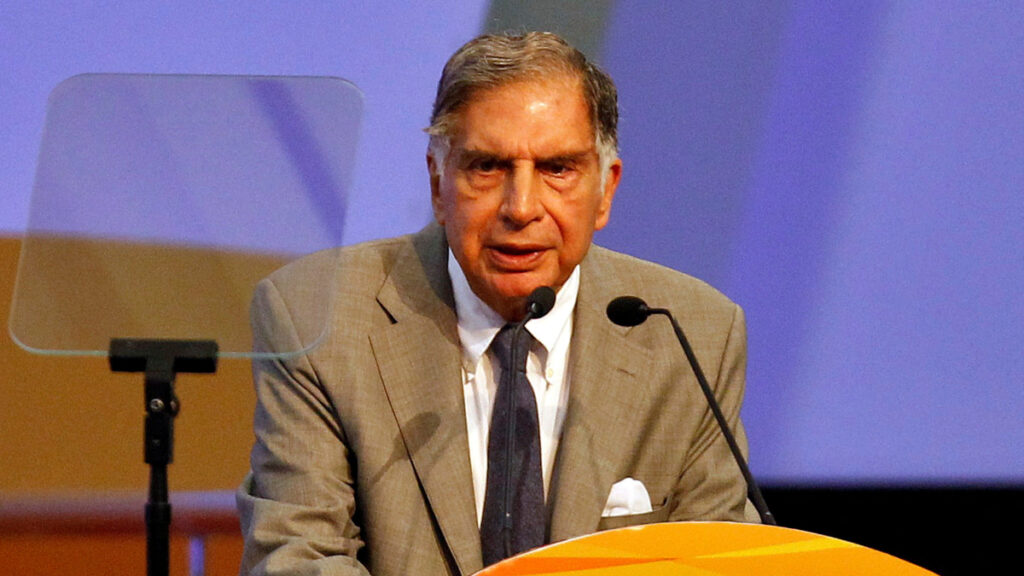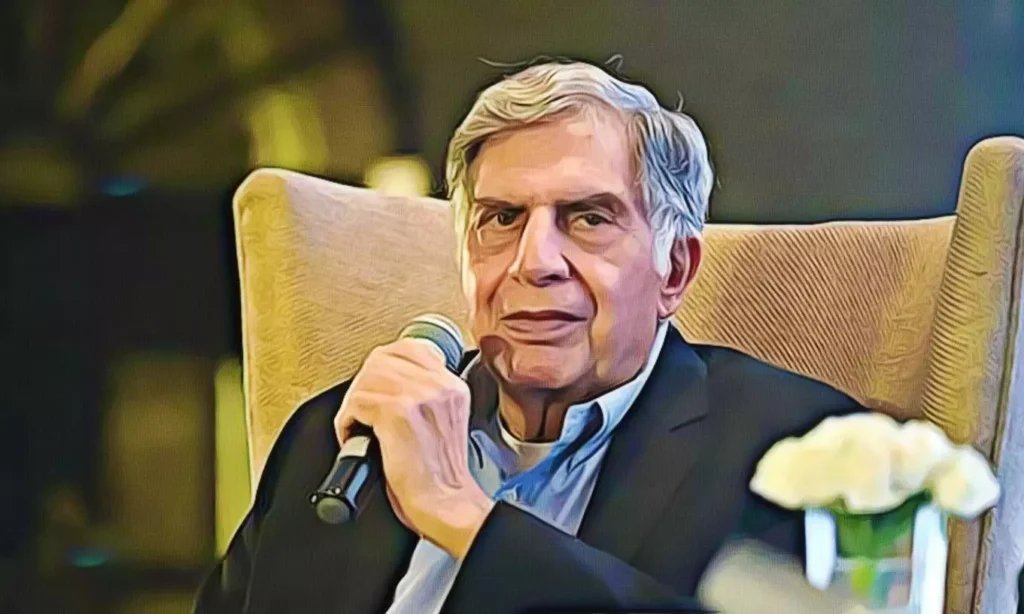Ratan Tata, the leader of a huge Indian business that expanded worldwide, has passed away at the age of 86.
A strong leader of a big family, he made a huge impact on Indian culture with his Tata Group, which also bought famous British brands like Tetley Tea and Jaguar.
Ratan Tata, a highly respected and influential business leader in India, passed away on Wednesday in Mumbai at the age of 86. He was known for turning his family’s company, the Tata Group, into a well-known global corporation with famous brands.
The Tata Group shared the news of his passing in a statement, but they didn’t mention what caused it. Reports indicated that he had been receiving care in a hospital’s critical unit.
During his time as chairman and CEO from 1991 to 2012, the Tata Group saw its profits grow by 50 times, mainly due to international sales of popular products like Jaguar and Land Rover cars and Tetley tea.
Even though the company expanded globally, its influence in India was stronger than ever under Mr. Tata’s guidance. For many middle-class Indians, using Tata products was a daily routine. They started their mornings with Tata tea, connected to the internet using Tata Photon, enjoyed Tata Sky shows on TV, traveled in Tata taxis or drove Tata cars, and relied on countless items made from Tata steel.
Starting in the 2010s, other family-run business groups began to compete with or even surpass the Tata Group in terms of revenue and value. However, none of these new business leaders gained the same level of public admiration as Mr. Tata, who was famous for giving away most of his money to charity and for supporting young entrepreneurs with startup investments.
The unique way the Tata Group was owned also made Mr. Tata more appealing. The main company, Tata Sons Pvt. Ltd., owned most of the shares and was primarily controlled by charitable trusts set up by members of the Tata family.

Mr. Tata became the chairman of the Tata Group in 2010. Over his 21 years in charge, the company’s profits grew by 50 times.
Mr. Tata liked to keep a low profile and was seen as a shy person who didn’t marry or have kids. However, towards the end of his career, he got caught up in a big scandal when he persuaded the Tata board to remove the successor he had chosen. This legal battle lasted for years and was always in the news.
Ratan Naval Tata was born on December 28, 1937, in Bombay, which is now called Mumbai, during the time when India was under British rule. His family was part of the Parsi community, whose Zoroastrian ancestors escaped persecution in Persia many years ago and settled in India. Mr. Tata became a prominent figure in that community.
The Tatas got rich during the 19th century by trading opium with China and running textile mills. When Ratan’s dad, Naval Tata, became the deputy chairman of the family business, the Tata Group was already involved in many different manufacturing and business activities.
Naval Tata got married to his cousin, Sooni Tata, but they ended up separating while their sons, Ratan and Jimmy, were still young. After that, their rich grandmother took care of both boys and raised them as her own.
Mr. Tata shared that he had a joyful childhood, but as he and his brother grew up, they experienced some teasing and personal struggles due to their parents’ divorce, which was less common back then. This reflection was part of a three-part Facebook interview he did in 2020.
He spent his early years in a grand Baroque revival-style building called Tata Palace in Mumbai, where he had a staff of 50 servants and was driven to school in a fancy Rolls-Royce. For high school, he was sent to the Riverdale Country School in New York City. Later, he graduated from Cornell University with a degree in architecture and also took management classes at Harvard Business School.
Mr. Tata kept a low-key social life. He spent a lot of his free time driving sports cars, flying planes, and racing his speedboat from a harbor near his apartment in Mumbai.

His family members include his stepmother, Simone; his younger brother, Jimmy; a half-brother named Noel; and two half-sisters, Shireen and Deanna Jejeebhoy.
Mr. Tata started working in the family business in 1962, first on the shop floor at Tata Steel. He worked his way up through various management roles. The only major challenge he faced was with the electronics division of the company, which he managed to improve at first, but it eventually failed during an economic downturn. However, years later, the division, known as Nelco, became successful again, especially in the field of satellite communication.
In 1991, J.R.D. Tata retired after being the chairman of Tata Sons and the Tata Group for fifty years, passing the leadership to Ratan Tata, who was from a different branch of the Tata family.

The other members of the Tata family and some business managers strongly disagreed with the succession. Mr. Tata mentioned in his Facebook interview, “People accused J.R.D. of favoritism, and I was seen as the bad choice.”
Mr. Tata quelled resistance and consolidated his leadership by forcibly retiring older Tata executives (softening the blow with generous pensions), making subsidiaries report to the group office, and embarking on a globalization of the family businesses.
He tapped into a nationalistic groundswell by pursuing a so-called “reverse colonialism” — the acquisition of British-based brand-name companies like Jaguar, Tetley and Corus Steel.
“Britain has become an ‘insourcing’ hub for Ratan Tata: a base for foreign operations of an Indian multinational,” The Guardian wrote in a 2008 article.
Image

Mr. Mistry didn’t just accept his removal quietly. He took legal action against the Tata group, claiming that his dismissal was not lawful. His accusations about the board showing favoritism, neglecting minority shareholders, and allowing wrongdoings received a lot of dramatic media attention over the next five years.
At first, the courts sided with Mr. Mistry. However, in 2021, the Supreme Court of India confirmed that his dismissal was legal, bringing the whole situation to a close.
This whole controversy took the spotlight away from Mr. Tata’s extensive charitable work. In India, he spent a large part of his wealth on projects related to education, health, and agriculture to help those in need. In the U.S., he and Tata Trusts donated millions to various universities, including his own schools, Cornell and Harvard Business School, to support research facilities and scholarship programs that bear the Tata name.
The Tata empire has always been about business and helping others since it was started in 1868 by Jamsetji Tata. Jamsetji was a pioneer because his factories were some of the first to really care about the well-being of their workers. He and his two sons decided to give away most of their wealth and company shares to charitable trusts.
Mr. Tata supported over 50 startup companies in India, which included e-commerce sites, digital payment services, and even an online lingerie shop. However, his top pick was a startup named Goodfellows, which aimed to create friendships between older and younger Indians in various fields.
During the launch of Goodfellows in Mumbai in 2022, he spoke to a mixed-age crowd and said, “You don’t really think about getting old until it happens, and then you realize it can be tough out there.”



